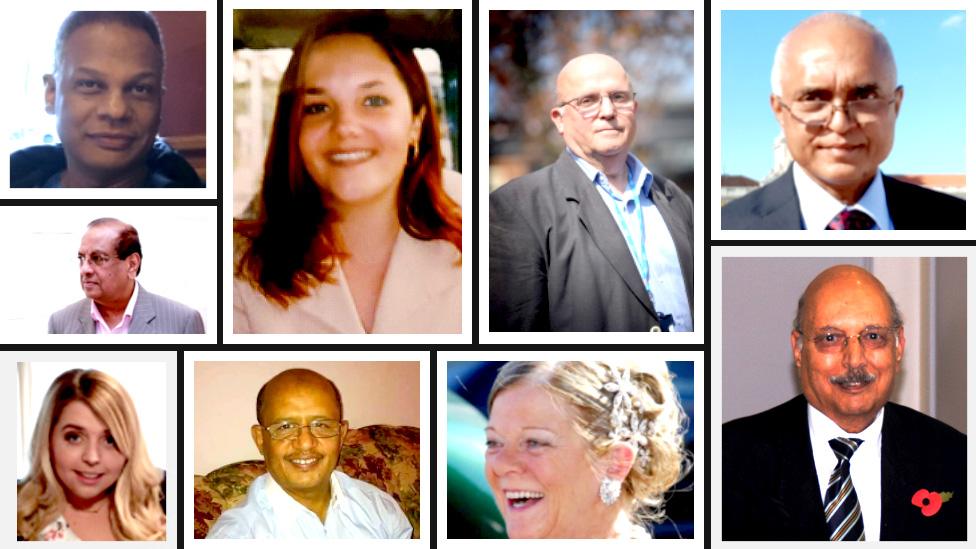Covid-19: Home working call after Mary Agyapong's death
- Published
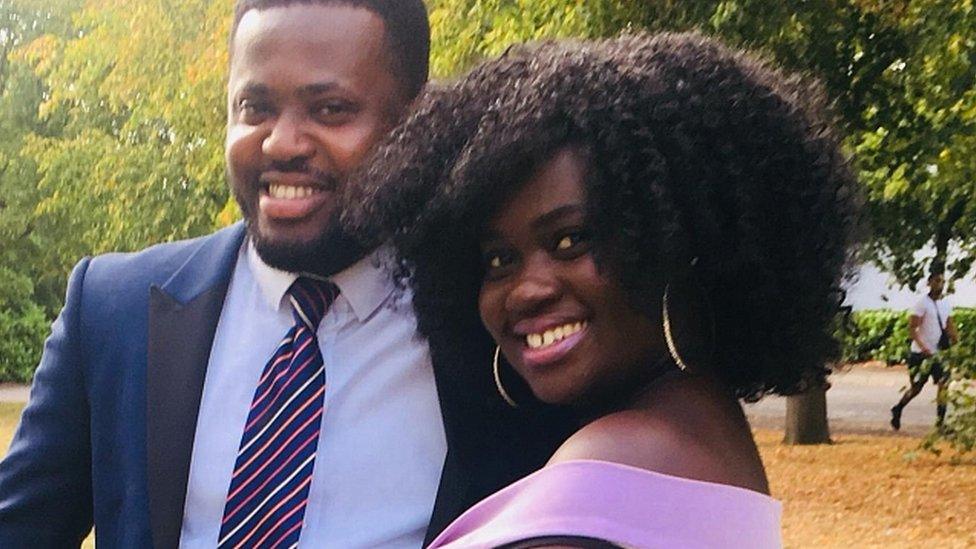
Ernest Boateng had concerns about the conditions at his wife's hospital, the review heard
A man whose wife died with Covid-19 has called on the prime minister to introduce a work-from-home rule for pregnant women during the pandemic.
Mary Agyeiwaa Agyapong, 28, died after giving birth at Luton and Dunstable Hospital, where she worked as a nurse.
Her widower, Ernest Boateng, wants extra protection for mothers-to-be.
The hospital said it would learn from a report into her care and the government said it was committed to making the NHS the world's safest place to give birth.
Ms Agyapong had worked at the hospital until she was 32 weeks' pregnant, and died there on 12 April.
A Healthcare Safety Investigation Branch (HSIB) report into her death was critical of how her care was managed, but found no failings or shortcomings that led to her death and therefore made no safety recommendations.

Mary Agyeiwaa Agyapong had worked at Luton and Dunstable Hospital for five years
She had been admitted to the hospital after suffering from a shortness of breath.
Initially discharged on 5 April, she was readmitted two days later with symptoms of the virus.
Surgeons safely delivered her baby, also named Mary, by caesarean section before Ms Agyapong was transferred to the intensive care unit where she died.
Mr Boateng wants women to either work from home once they are 20 weeks' pregnant, or be suspended on full pay.
In his letter to Boris Johnson, he pleaded that "pregnant women must be protected during this pandemic".
'Understanding risks'
He wrote: "I would be delighted to meet with you to ensure that no other family is forced to endure the suffering that mine has."
Concerns raised in the HSIB report, seen by the BBC, included that checks on Ms Agyapong and her baby were insufficient after her first admission to A&E, that no reason was given to discharge her and that on readmission, a proper plan of care was not discussed.
However, the safety watchdog said it recognised "significant changes to practice implemented during the Covid-19 pandemic".
It said that at the time of her illness, understanding of the risks for pregnant mothers was "limited" and the susceptibility of Black, Asian, and minority ethnic persons to the virus "had not been identified".
The hospital said it had not had any Covid patients before Ms Agyapong took maternity leave.
In September a pre-inquest review heard Mr Boateng had concerns about the conditions at her workplace.
David Carter, chief executive of Bedfordshire Hospitals NHS Foundation Trust, said: "We are deeply saddened by the loss of Mary, who was a valued and much-loved member of our team, and understand how hard this is for her family and friends.
"HSIB's report acknowledges the huge efforts made by our teams in extremely difficult circumstances. We are reassured that there were no safety concerns we need to rectify, but we are committed to reflecting on and learning from all of its findings."
A government spokesperson said: "This was a tragic case, and our deepest sympathies remain with Mary Agyapong's family.
"We are committed to making the NHS the safest place in the world to give birth, and Trusts must take all possible steps to minimise the risk of COVID-19 for women and their babies.
"If necessary safety measures cannot be put in place, such as adjustments to their job or working from home, pregnant women should be placed on paid leave.
"Workers can raise concerns through their employee representative, trade union or the Health and Safety Executive, who can take enforcement action if required."

LOCAL RULES: Check the Covid rules where you live
SOCIAL DISTANCING: Am I allowed to give my friends a hug?
TESTING: Who can get a test and how?
'LONG COVID': Why are some people not recovering?


Find BBC News: East of England on Facebook, external, Instagram, external and Twitter, external. If you have a story suggestion email eastofenglandnews@bbc.co.uk, external
- Published30 September 2020
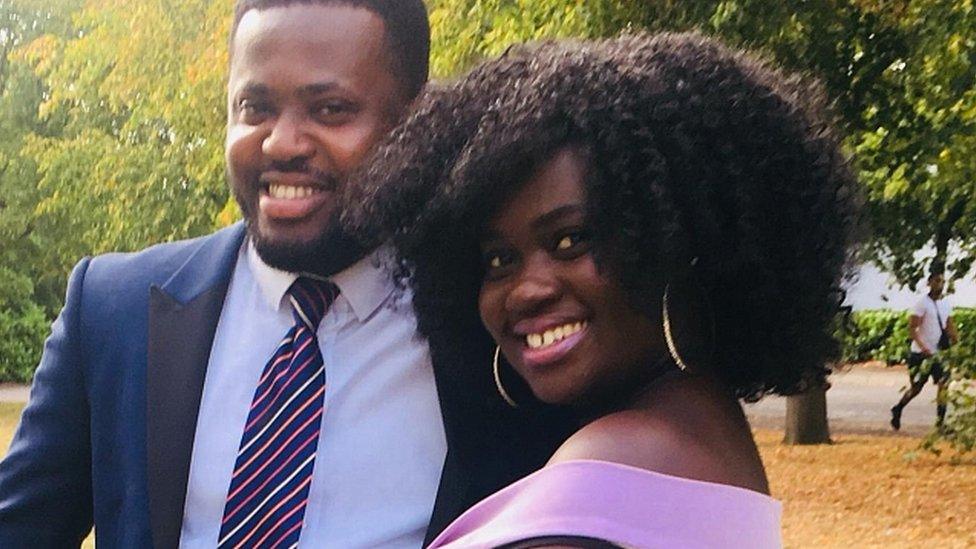
- Published21 May 2020

- Published16 April 2020
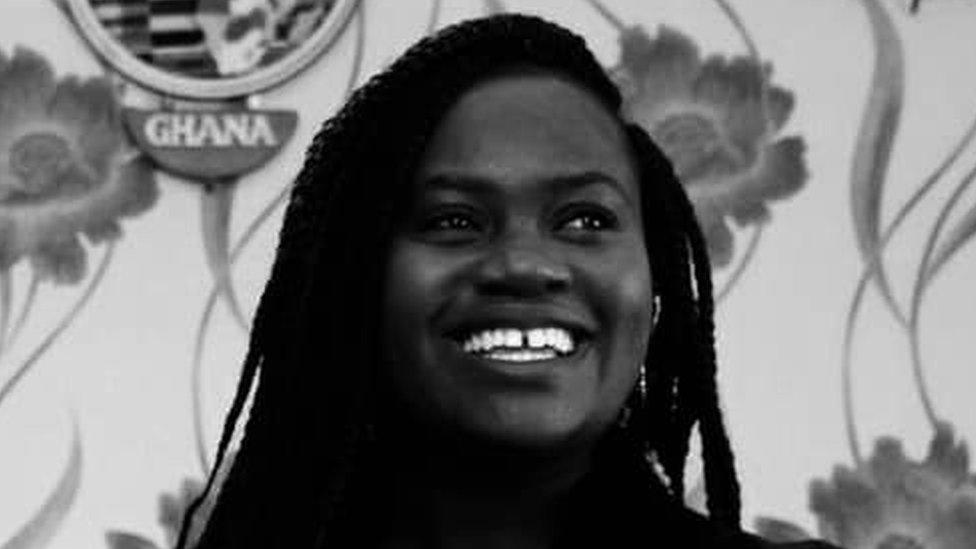
- Published15 April 2020
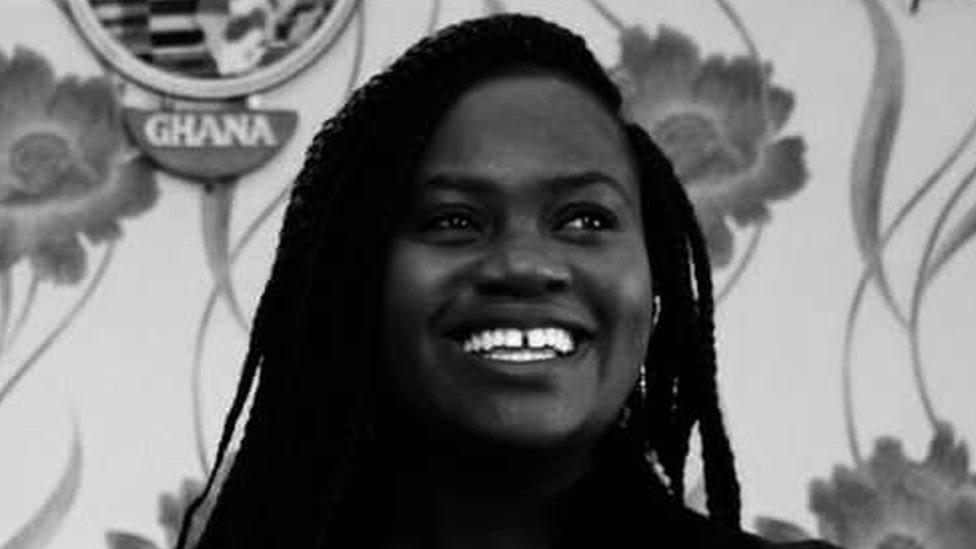
- Published28 April 2020
